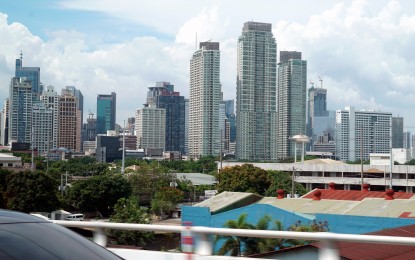
File photo
MANILA – An economist is optimistic about the recovery of foreign direct investments (FDIs) to the Philippines despite its 30.7 percent year-on-year drop in March 2023 to USD548 million, the lowest in two months.
The Bangko Sentral ng Pilipinas (BSP) on Tuesday attributed the latest FDI level to the across-the-board decline of all FDI components “amid investor concerns over subdued global growth prospects.”
Rizal Commercial Banking Corp. (RCBC) chief economist Michael Ricafort said he believes that the full reopening of the economy, sustained recovery of domestic output, deceleration of inflation rate, eventual cuts in the central bank’s key rates, and the Philippines’ membership in the world’s largest free trade deal – the Regional Comprehensive Economic Partnership (RCEP) – are factors that would help increase FDIs.
He traced the drop in FDIs in March to risk aversion after the banking-related issues in the US during that period, specifically, the bank failures that involved Silicon Valley Bank, Signature Bank, and First Republic Bank.
However, Ricafort said, “These concerns already eased in recent weeks after the quick action by the US authorities to guarantee the deposits of these banks.”
The BSP said the bulk of the equity capital investments in March came from Singapore, Japan, and the United States, and were directed primarily to manufacturing, information and communications, and real estate industries.
For the first quarter of this year, net FDI reached USD2.04 billion, down by 19.6 percent compared to USD2.54 billion in the same period in 2022.
Despite this development, Ricafort said FDI inflows to the country continue to pour in due to the attractive demographics, along with the investment commitments received during the overseas trips of President Ferdinand R. Marcos Jr. and his key government officials, and the passage of major economic reforms, such as the Corporate Recovery and Tax Incentives for Enterprises Act (CREATE Act).
The sustained increase in government spending on infrastructure, which rose to about 5 percent of the domestic output during the Duterte administration from about 3 percent of the gross domestic product (GDP) in the past administrations, is also expected as additional buoys for FDIs.
“Continued affirmation of the country’s investment grade ratings for the third straight year since the (coronavirus disease 2019) Covid-19 pandemic, at one to three notches above the minimum investment grade, would still help attract more/bigger roster of foreign investments/FDIs and credit facilities at better terms into the country, attesting to improved credit and economic fundamentals in recent years/decades,” Ricafort said.
These factors are, however, seen to be countered by the still elevated inflation rate, not only domestically but overseas, the hikes in central banks’ key rates, and the possibility of a recession in the US, he added. (PNA)
